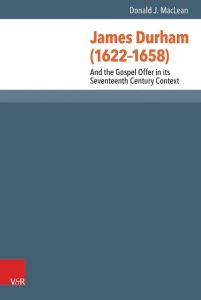 The Westminster Confession into the 21st Century series has been something of a mixed bag (as multi-author sets tend to be) but here is a good quote from Philip Ryken on the Puritan understanding of preaching:
The Westminster Confession into the 21st Century series has been something of a mixed bag (as multi-author sets tend to be) but here is a good quote from Philip Ryken on the Puritan understanding of preaching:
The way the law leads men to Christ is by showing them that they will surely perish without him. “Make known to the lost sheep the utter misery of their condition outside of Christ. No one ever comes to Christ who stands on his own. The Prodigal does not race back to his father until he has to, lest he perish on his own.” While the law shows the sheep that they are lost, only the gospel will bring them home, and thus all preaching is to be evangelistic. The main work of the gospel minister is to preach Christ, who is “the Alpha and Omega of the ministry.” To preach Christ is to take his person, his work, and his benefits and offer them freely to sinners.
Philip Ryken, ‘Oliver Bowles and the Westminster View of the Gospel Ministry’ in J. Ligon Duncan, ed., The Westminster Confession into the 21st Century, 2:421-2
Ryken here is writing on Oliver Bowles’ De Pastore Evangelico – a work Durham was familiar with. We have seen comments similar to Ryken’s before:
The Puritans did not regard evangelistic sermons as a special class of sermons, having their own peculiar style and conventions; the Puritan position was, rather, that, since all Scripture bears witness to Christ, and all sermons should aim to expound and apply what is in the Bible, all proper sermons would of necessity declare Christ and so be to some extent evangelistic.
‘The Puritan View of Preaching the Gospel’, How Shall They Hear?, Papers Read at the Puritan and Reformed Studies Conference, December 1959, p 11-21, Rept. Tentmaker
Who knows – Ryken and Packer might be right 🙂

 The
The